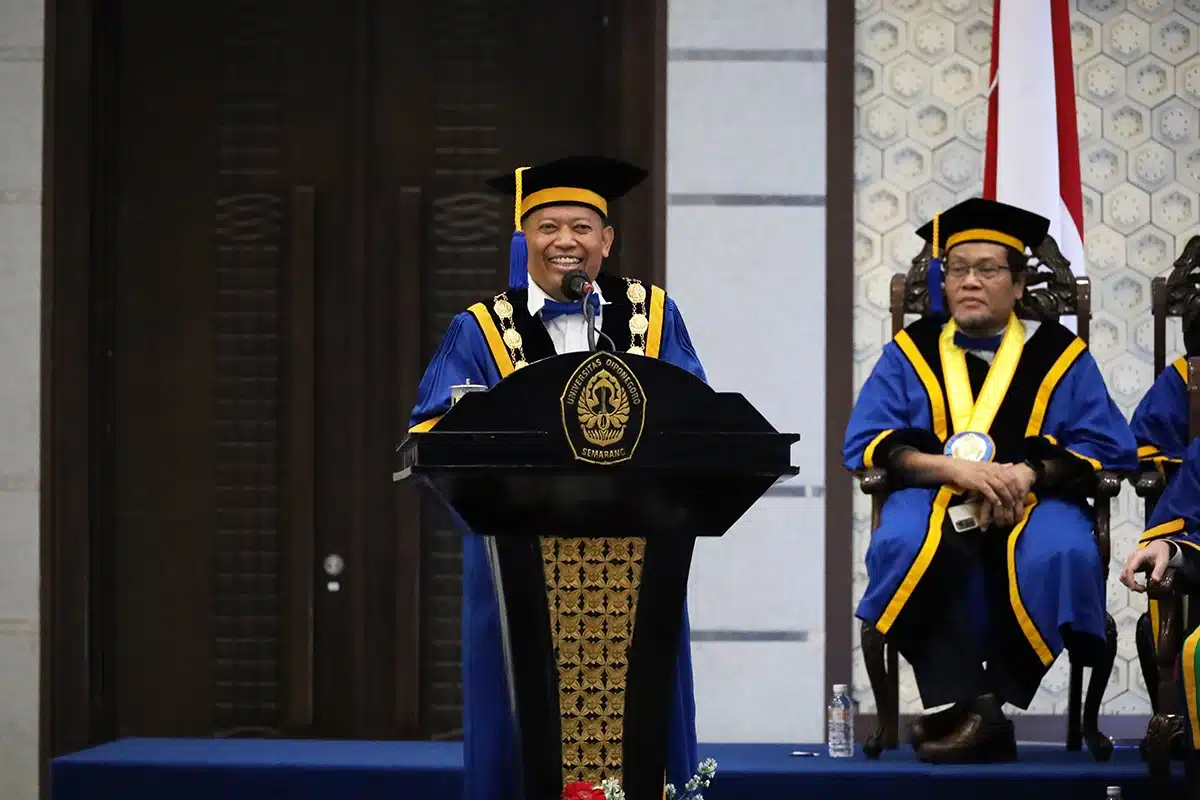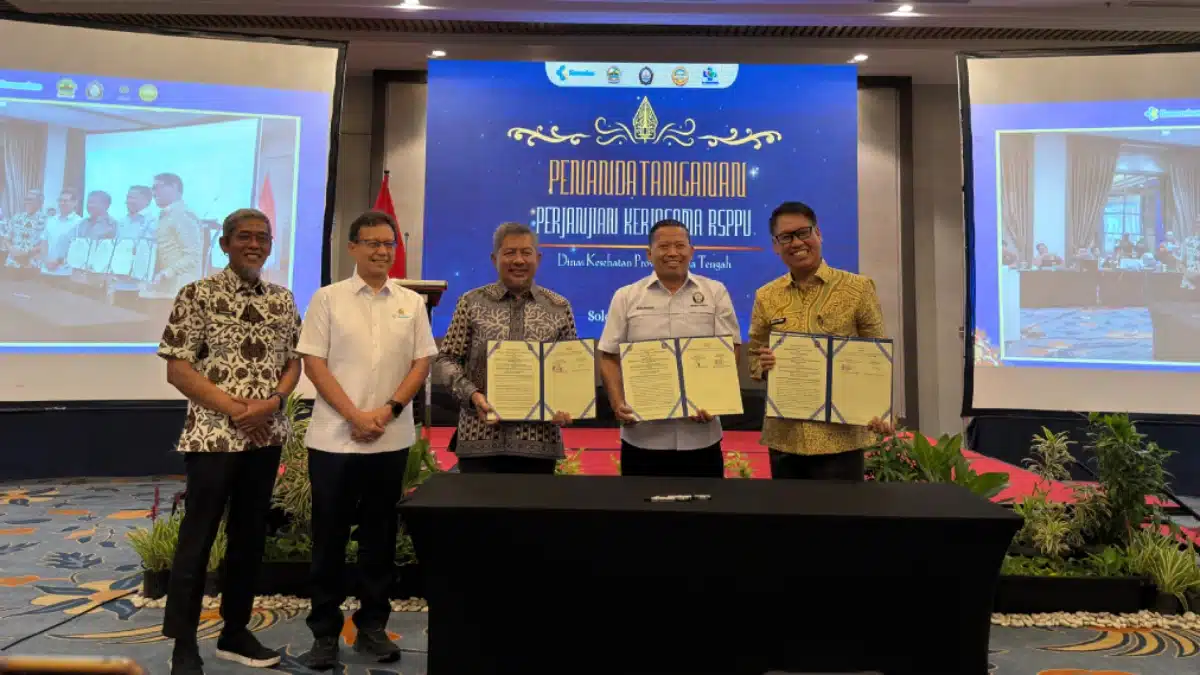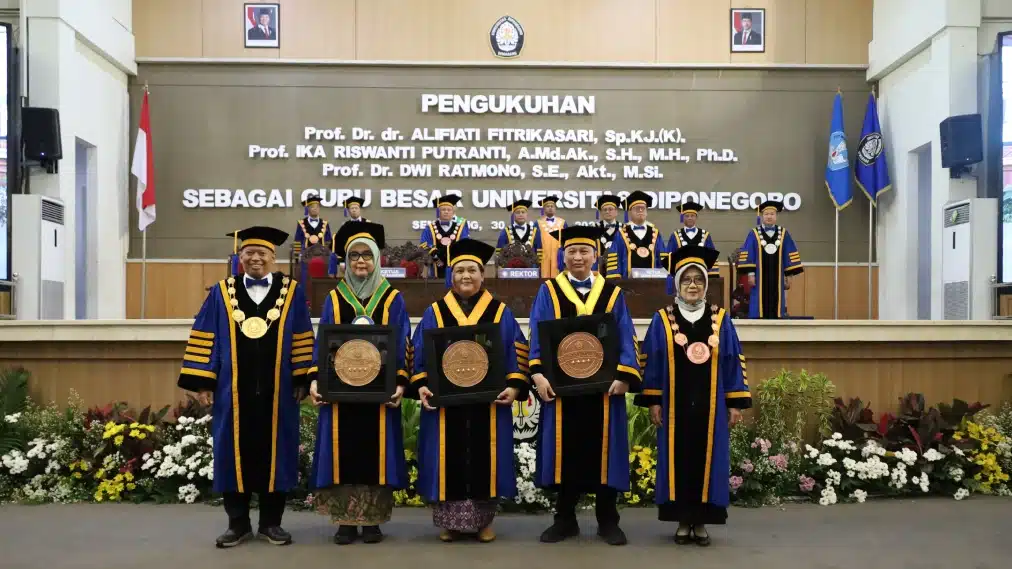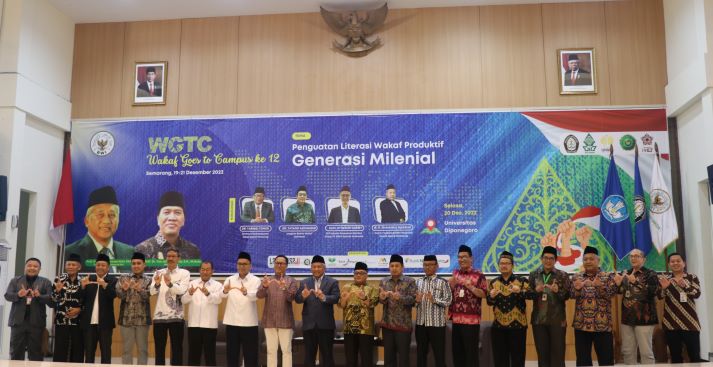“Currently, Indonesia has entered the era of revival of national waqf. This is marked by the growth of collective awareness across social structures for waqf, the use of technology in managing waqf, awareness to manage waqf assets based on good waqf governance, diversification of assets, especially money waqf which is easier and more flexible, the use of Cash Waqf Linked Sukuk as an instrument that is guaranteed security and the certainty of the results, as well as the synergy between Islamic Social Finance and Islamic Commercial Finance which is getting stronger.” This was conveyed by the Vice Rector I of Diponegoro University, Prof. Faisal, S.E., M.Si., Ph.D., representing the Rector of Undip when giving a speech at the 12th Waqf Goes to Campus (WGTC) event with the theme “Literacy Strengthening of Productive Waqf for Millennial Generation”, Tuesday (20/12) in Prof. Soedarto S.H. Building, Undip Tembalang campus.
“The WGTC activities between Undip and the Indonesian Waqf Agency aim to carry out waqf education, socialization, and literacy in an effort to drive waqf on campus so that it can encourage the progress of educational infrastructure in tertiary institutions and increase active participation in advancing national waqf. Students through their role as intellectual agents support the transformation of this productive waqf by providing new ideas and innovations in design, digitalization and reporting systems so that it will have an impact on increasing public trust in the instruments of this productive waqf,” continued Prof. Faisal.
“In addition, this activity aims to develop student leadership and entrepreneurial potential. The hope is that students have the courage to become waqf activists on campus. With the awareness of students, lecturers, staff on campus in representation, it can encourage the progress of the country. So that in this good opportunity, let’s learn together to increase knowledge and practice waqf,” he concluded.
On the occasion, Prof. Dr. Ir. Mohammad Nuh, DEA as Chief Executive of the Indonesian Waqf Board (BWI) said it is important to prepare a new era of national waqf to improve welfare, quality of preaching and maintain dignity. Why Waqf Goes to Campus? According to him, the educated and future generation (coming from the best universities), the middle class group have quite high purchasing power, a very large number (demographic bonus), high awareness of diversity (religiosity), technology (digital) savvy, and the obligation to maintain sustainability.
“Waqf is not only an investment in the hereafter, but an investment whose benefits can be obtained in this world and the hereafter. True happiness is making other people happy,” said Prof. Muhammad Nuh. (Lin – Public Relations)









